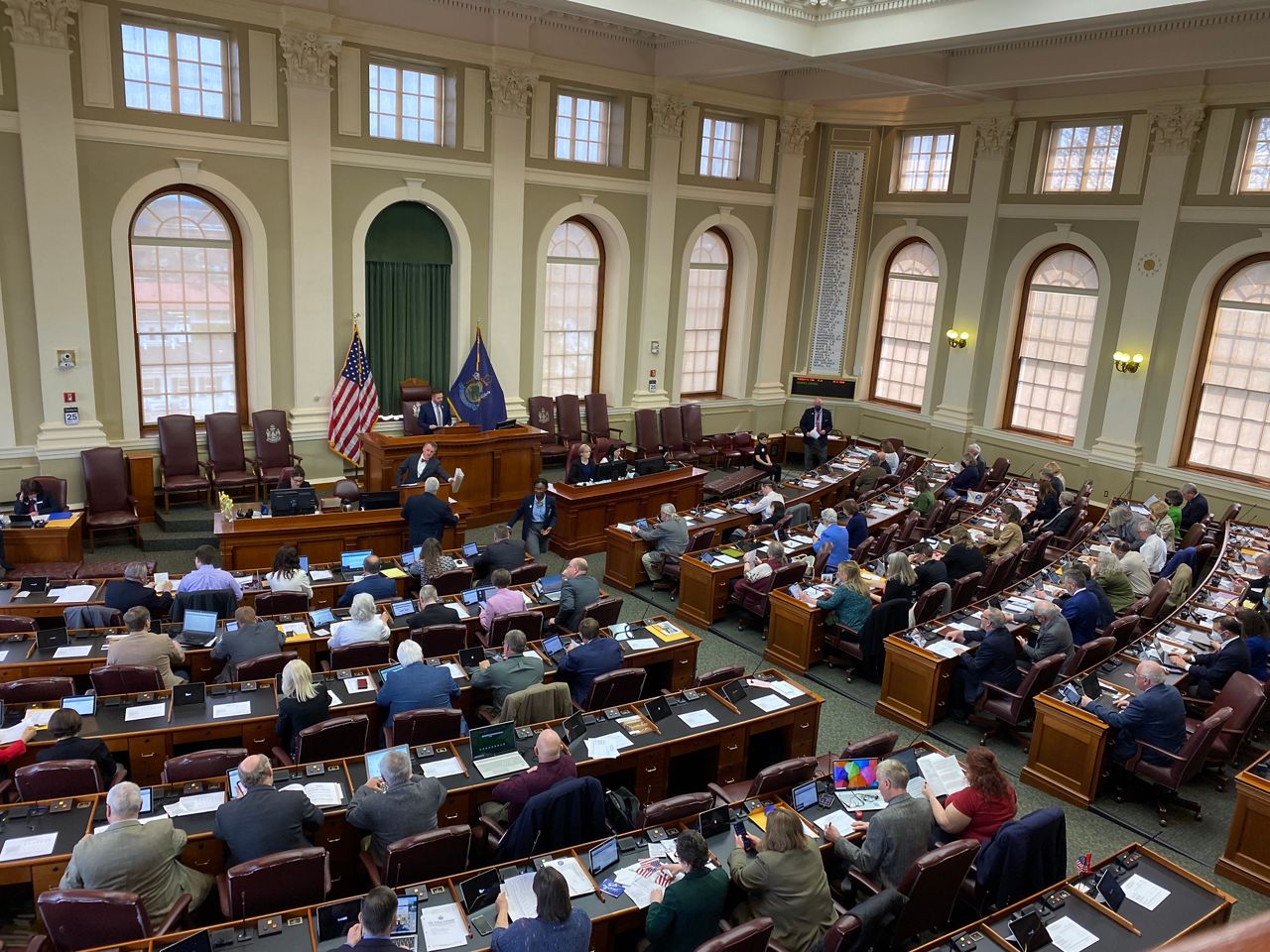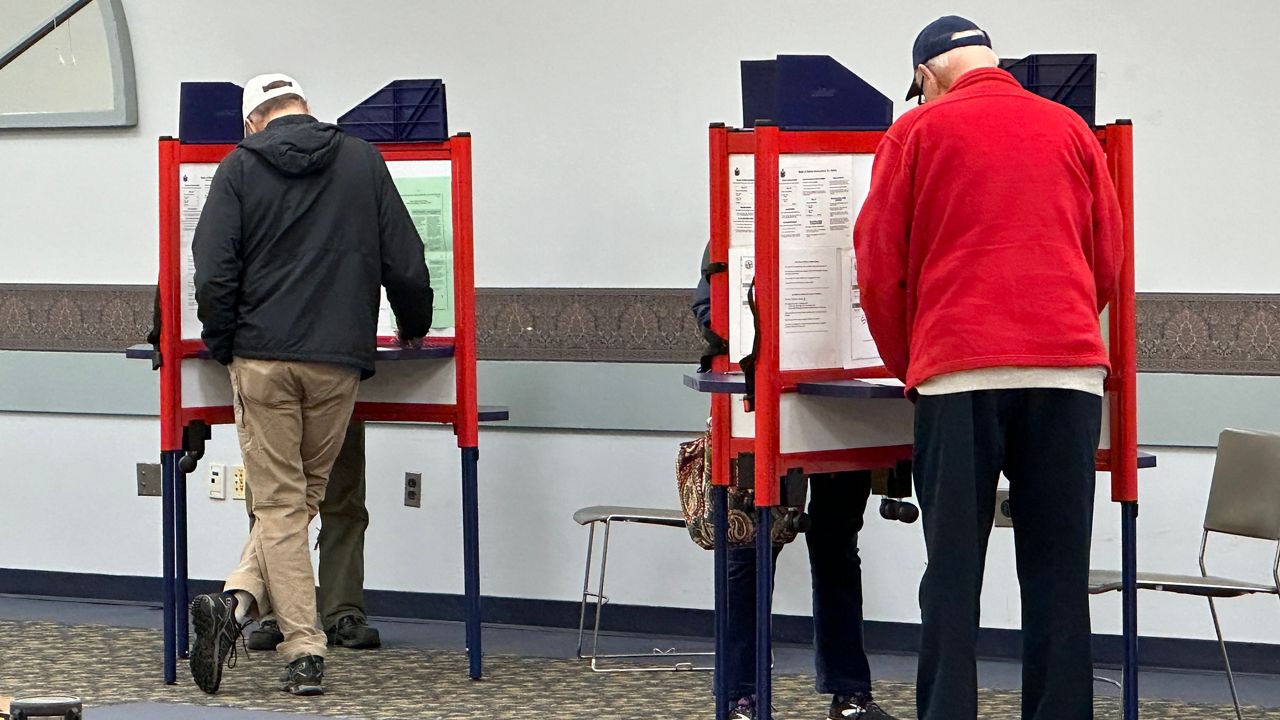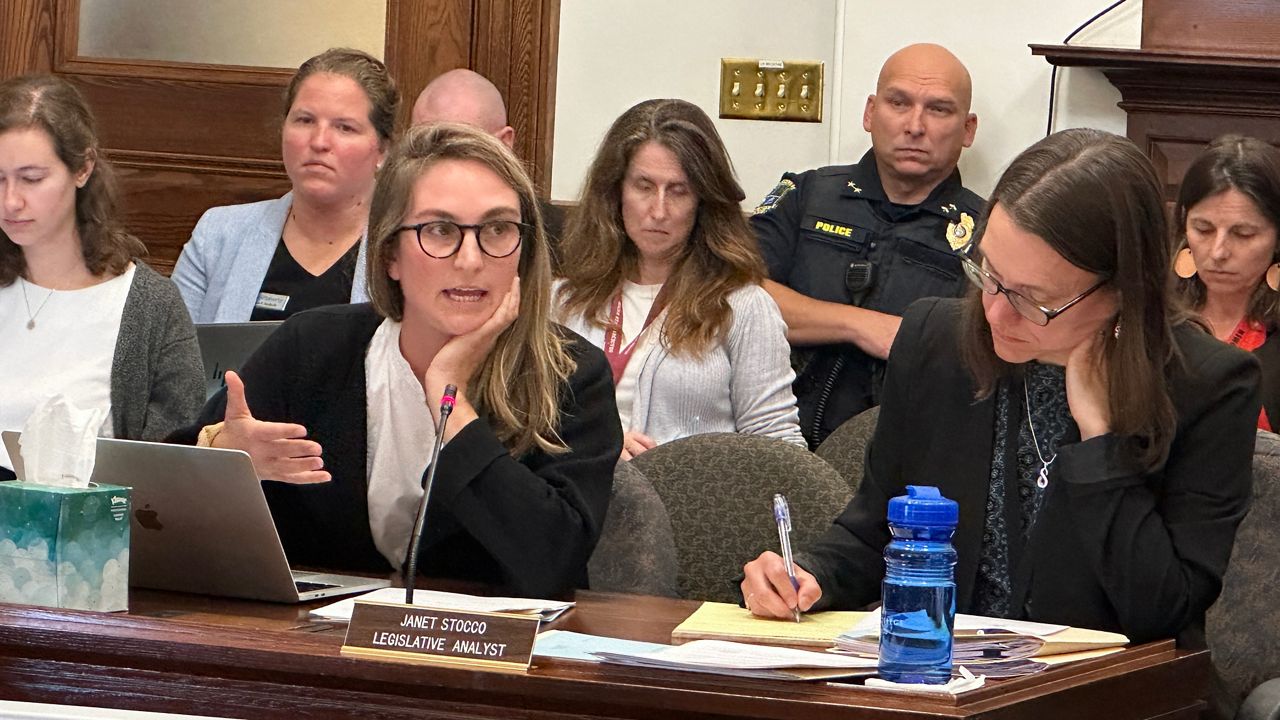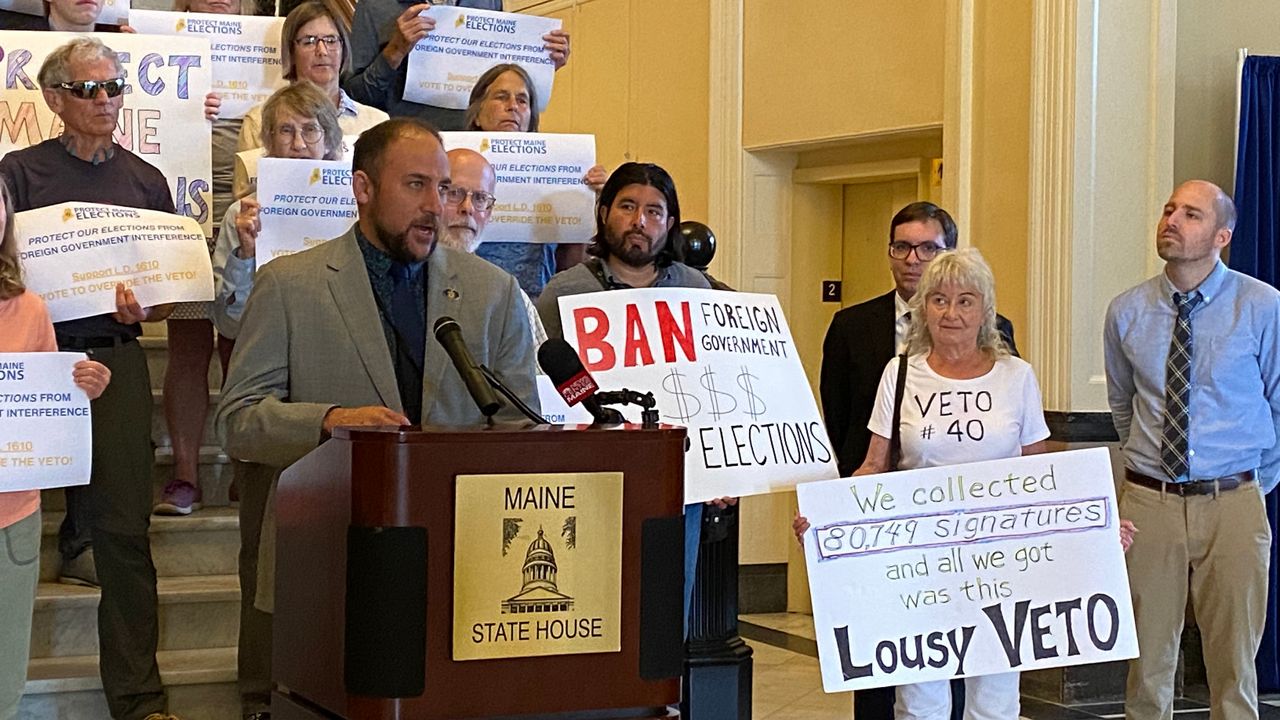As he left Waterville City Hall with his absentee ballot, Denny Daily ticked off the things he looks for in a candidate running for the Maine Legislature.
“What they believe in and their background,” he said. “Have they held the position before?”
This year, as Maine voters cast ballots early and on Nov. 8, they will decide who will fill the 151 seats in the Maine House of Representatives and the 35 seats in the Senate.
And while legislative races tend to get overshadowed by the race for governor, this election is shaping up to be a true contest for power in Augusta. The House and Senate are two of only seven legislative chambers nationwide rated as toss-ups, giving both parties hope of grabbing power.
Going into the election, Democrats control both chambers.
But Maine is “one of the GOP’s primary opportunities for a legislative takeover,” according to ratings posted Oct. 20 by Louis Jacobson of the University of Virginia Center for Politics, which rates legislative battles nationwide.
“The openness to ticket-splitting, both in New England generally and Maine specifically, could produce a flipped legislative chamber or two” even if Democratic Gov. Janet Mills is reelected, he wrote.
Mills, who is seeking a second term, faces former two-term Republican Gov. Paul LePage and independent political newcomer Sam Hunkler.
Across the country, Republicans hold power in 61 legislative chambers and Democrats control 37, according to the National Conference of State Legislatures. Those totals do not include Nebraska, which has a unicameral, nonpartisan legislative body.
In Maine, Democrats have controlled the House in 46 of the last 50 years and in the Senate, Democrats have ruled for 31 years compared to 19 for the Republicans.
Another national forecaster, CNalysis, lists the Maine Senate as leaning Democratic this year but considers the House a toss-up.
Garrett Mason, a former Republican lawmaker who now works as a political consultant, said while the parties work to exert their influence, House and Senate races often come down to name recognition.
“In Maine, we’re lucky to have small districts and most of the time you know the person on the ballot,” he said.
That gives an advantage to a former wrestling coach or school teacher who may win a district that is the opposite of their political party.
And while legislative races might get overlooked — particularly with television commercials focused on Congress and the governor’s race — who controls the House and Senate has a much more immediate impact on day-to-day life, Mason said.
“In my opinion, I think the Legislature has the most impact on people’s lives,” he said. “Your income tax, that’s the Legislature. If your child has a speech delay and needs services, that’s impacted by the Legislature. There are so many things the Legislature decides and it’s very important to pay attention to legislative races.”
In addition, the majority party in the Legislature chooses the secretary of state, attorney general, treasurer and state auditor.
Democratic strategist David Farmer, who worked as deputy chief of staff to former Gov. John Baldacci, cited two major factors that determine who wins Maine House and Senate seats.
The first is the national environment, which he said presents Democrats with headwinds this election cycle because of what he described as a “mixed economy” with high inflation but also higher wages.
The second is how hard the candidates work to meet people in their districts.
“In Maine, especially for the House and even the Senate, voters have an expectation they are going to see you and meet you,” he said. “Those candidates who knock on doors give voters the tools they need.”
As a co-equal branch of government, the Legislature provides a powerful check on the governor.
“The governor is the most powerful person, but can do little without the legislative branch,” Farmer said.







)

